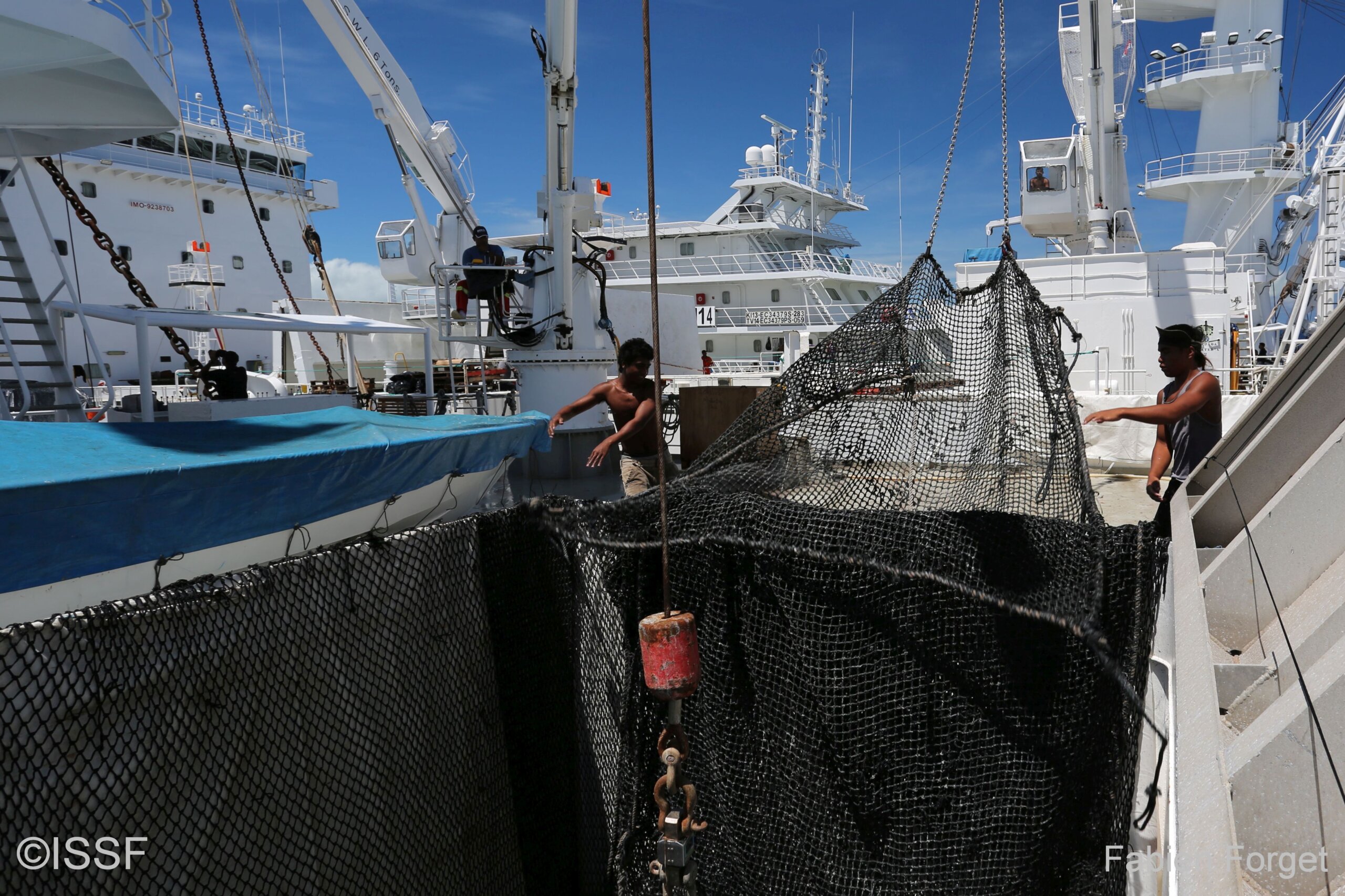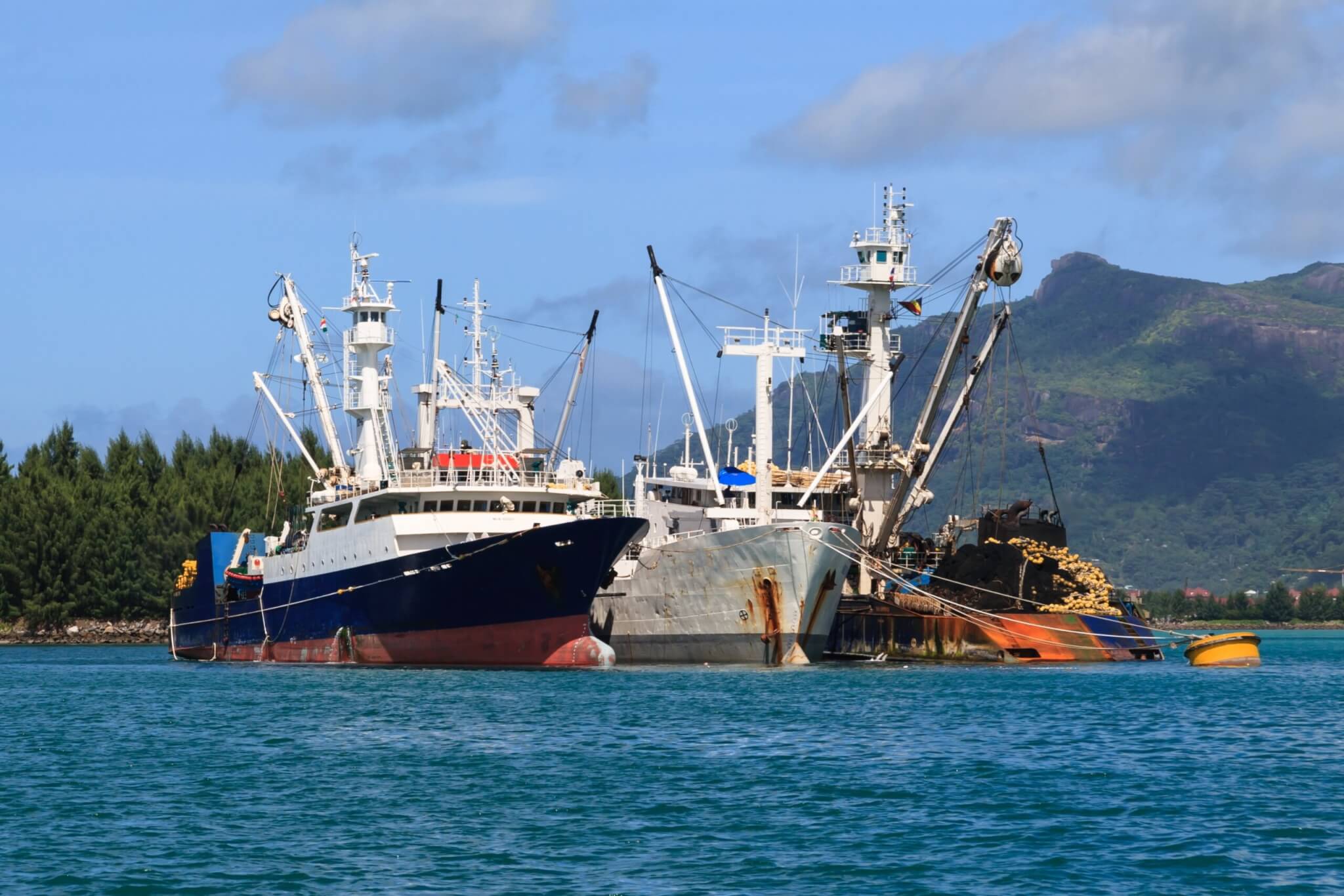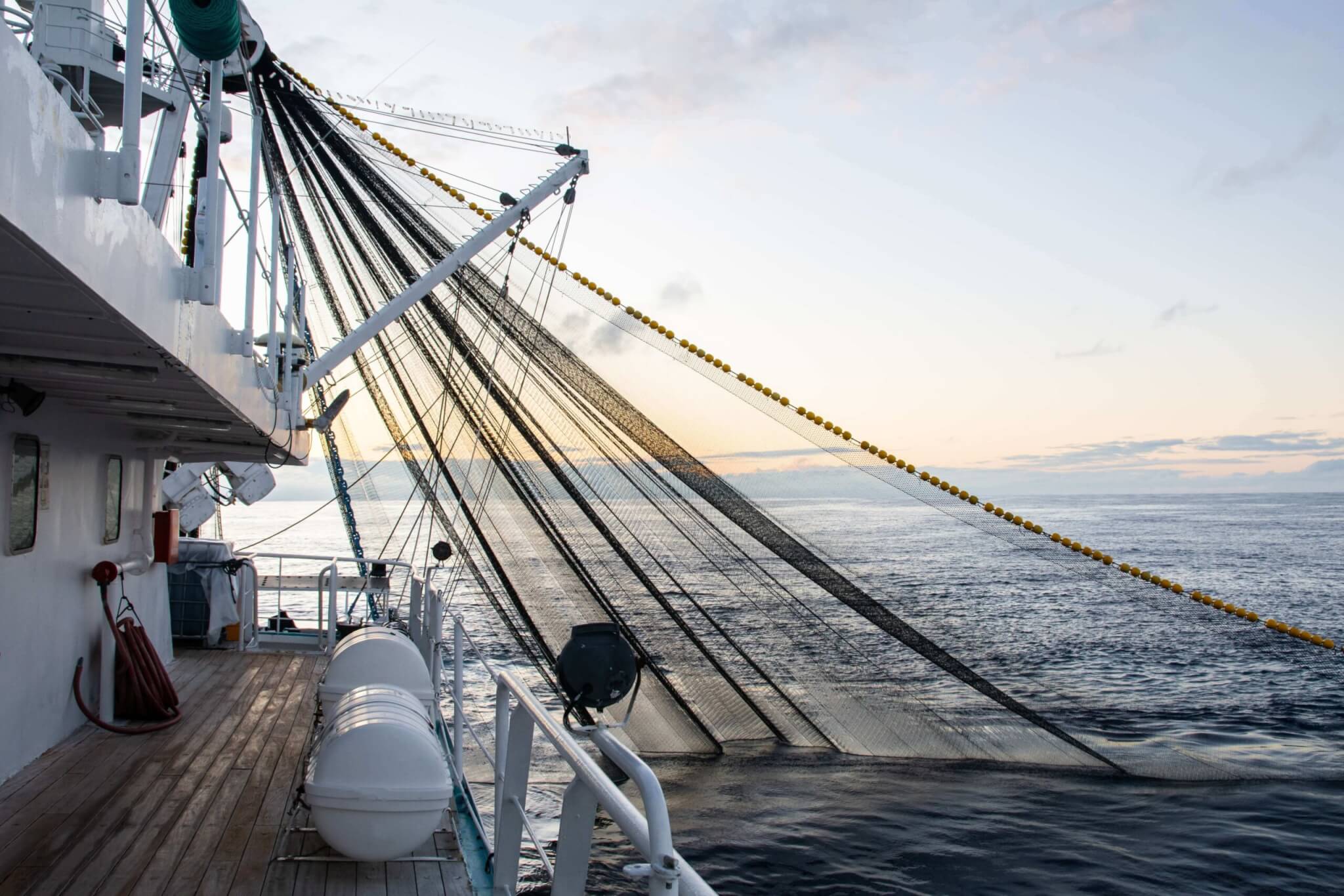
Mixed Results at ICCAT Annual Session: Compliance Reforms and Electronic Monitoring Standards Among Positive Meeting Outcomes
The International Seafood Sustainability Foundation (ISSF) is welcoming some progress for Atlantic Ocean tuna fisheries as the annual meeting of International Commission for the Conservation of Atlantic Tunas (ICCAT) concludes. While we were hoping for more fulsome headway against our priority asks this year, we are pleased that the Commission made some gains, specifically in adopting minimum standards for electronic monitoring and further advancing compliance improvements.
Here is a review of the outcomes of the ICCAT meeting against some of our organization’s priorities as outlined in our 2023 position statement.
Compliance Processes
Though ICCAT has one of the most open compliance assessment processes among the five tuna RFMOs, room for improvement remains. We have been working with partner NGOs to identify compliance reform priorities for tuna regional fisheries management organizations (RFMOs), and our position statement included several of those recommendations. We are pleased to report that ICCAT agreed to one such recommendation — the use of its table of responses to non-compliance, which was adopted by ICCAT in 2022, for the review of member states’ compliance this year.
Looking ahead, we will be working with our NGO partners and other stakeholders to advocate for further alignment of the ICCAT compliance process with RFMO compliance best practices.
Tuna Stock Conservation and FAD Management
For the third year in a row, ISSF urged ICCAT to adopt a strengthened tropical tuna measure that maintains bigeye and yellowfin stocks at sustainable levels and improves the management of FADs — especially requirements for fully non-entangling and biodegradable FADs. Many of these improvements were included in a draft measure that was discussed towards the end of the meeting, but unfortunately the Commission was unable to reach consensus. While the Commission maintained its current conservation measure for tropical tunas in place for 2024, which will ensure the current management safeguards for these stocks remain in force, it is disappointing that needed improvements to the existing measure escaped agreement once again.
Electronic Monitoring and Reporting and Observer Coverage
Progress on electronic monitoring improvements was a bright spot at this year’s ICCAT meeting. Specifically, the Commission agreed to adopt electronic monitoring (EM) minimum standards for purse seine and longline fisheries. We applaud ICCAT as the second tuna RFMO to adopt EM program and data standards this year.
While we had hoped the Commission would also strengthen its observer coverage requirements, EM standards will help achieve higher levels of monitoring, which is critical to effective fisheries management; compliance monitoring; and independent verification of catch, effort, and non-target species interactions.
Effective Management Procedures (Harvest Strategies)
ISSF and partners have been consistently pressing for the accelerated adoption of harvest strategies for tunas across all RFMOs. We are therefore disappointed that ICCAT also failed to act on new harvest strategies this year. The Commission did not adopt a harvest strategy for western Atlantic skipjack as recommended by its SCRS and we are hopeful that this will be achieved in 2024.
Bycatch Mitigation & Shark Protections
We closed our list of 2023 priority asks for ICCAT with a focus on bycatch species, including sharks and seabirds. The good news is that the Commission did agree to reduce the TACs for blue shark stocks in line with SCRS advice — specifically to levels that will ensure a high probability that the stocks will remain in a healthy state.
But we are deeply disappointed that ICCAT once again failed to agree to require that all sharks be landed with fins naturally attached, without exceptions. This year marks 15 years of inaction on this important issue which is supported by the majority of ICCAT members, and we cannot overemphasize the need for decisive progress to protect sharks in 2024. We were also disappointed by ICCAT’s failure to adopt measures on catch limits for shortfin mako sharks and modernize its seabird bycatch mitigation measure.
This year’s ICCAT meeting concluded with less progress than we had hoped and advocated for. As a result, 2024 brings into clear focus the issues on which ICCAT member countries must prioritize and make decisive progress. These include: a strengthened tropical tuna measure that maintains bigeye and yellowfin stocks at sustainable levels; much improved FAD management measures; transshipment and other MCS measure reforms; a fins-naturally attached requirement; and modernized protections for seabirds. We hope you will join ISSF efforts to continue to seek progress for Atlantic Ocean tuna fisheries into the New Year.


